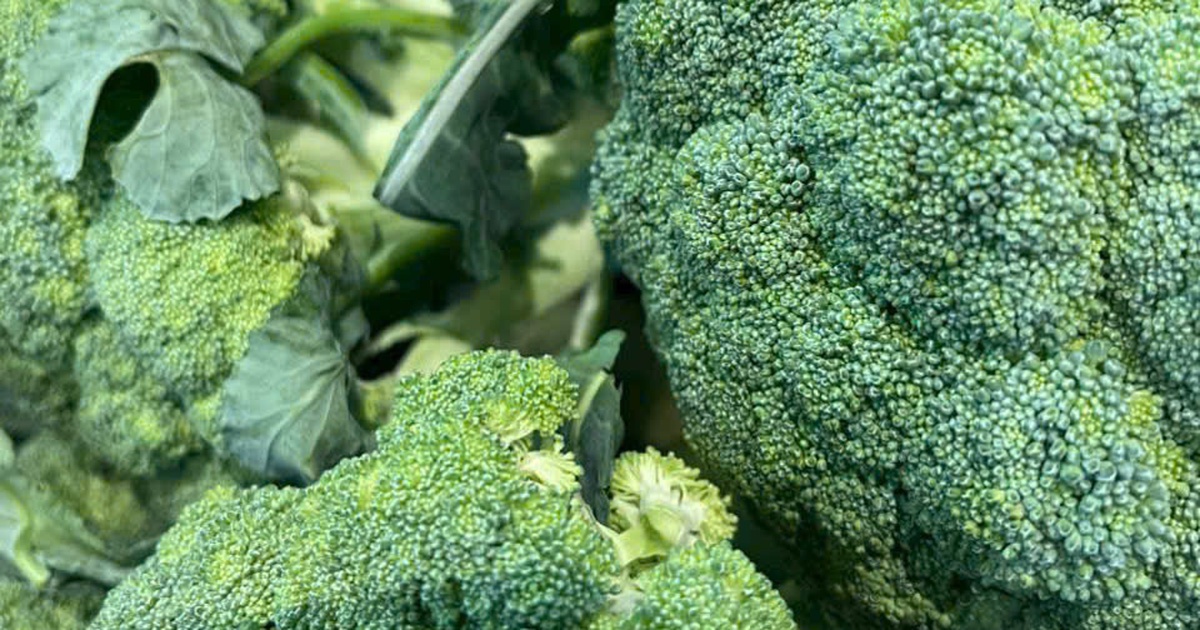Anyone who has ever found comfort after a tiring day with treats like ice cream knows that food can affect mood, in both positive and negative ways.

There are foods that, if included as part of a regular diet, can help improve mental health - Photo: Deb Maes
Michelle Routhenstein, a preventive cardiologist at the Entirely Nourished Center, tells Yahoo Life that certain foods, such as those high in saturated fat and refined sugar, can cause blood sugar fluctuations, leading to mood swings, fatigue, sleep disturbances, and inflammation, which can lead to feelings of lethargy and depression.
Meanwhile, Christine Byrne, a nutritionist in Raleigh (North Carolina, USA), added that using food as a coping mechanism for emotions such as boredom, stress, loneliness or sadness can negatively impact mood.
Conversely, there are also foods that, if included as part of a regular diet, can help improve mental health.
“Certain foods have the potential to positively impact mood by boosting brain health, regulating mood, stabilizing blood sugar, and providing sustained energy,” says Routhenstein.
A 2018 study identified 12 key nutrients associated with the prevention and treatment of depressive disorders. These “antidepressant nutrients” include folate, iron, omega-3 fatty acids, magnesium, potassium, selenium, thiamine, vitamin A, vitamin B6, vitamin B12, vitamin C, and zinc.
Overall, however, Byrne says that “a balanced diet with plenty of nutrient-dense foods is probably best for mental health.” She stresses that food not only provides nutrition, but also provides pleasure, social and cultural connection, and brings back fond memories – all of which can positively affect mood.
Here are the top 6 foods experts recommend to improve mood.
Pumpkin seeds help improve mood
"Pumpkin seeds are an excellent source of tryptophan, an amino acid that helps regulate mood by being involved in the production of serotonin, a neurotransmitter associated with feelings of happiness," Routhenstein explains. A 2021 study found that consuming up to 3 grams of L-tryptophan per day can help reduce anxiety and improve mood in healthy people.
Pumpkin seeds are also rich in protein and unsaturated fats, which help keep you full and stabilize blood sugar, thereby preventing mood swings.
Fatty fish
Fatty fish, such as salmon, mackerel, sardines, and herring, are rich in omega-3 fatty acids, which help protect the heart, fight inflammation, and support brain function. “Studies show that omega-3 fatty acids are strongly linked to improved mood,” says Byrne.
Fatty fish is also rich in vitamin D, which has neuroprotective and anti-inflammatory effects and aids in serotonin production. The American Heart Association recommends eating 3 ounces of cooked fatty fish twice a week.
Butter
“Avocados contain monounsaturated fats, especially oleic acid, which is essential for brain health and has been linked to a lower risk of depression,” says Routhenstein. Avocados also contain tryptophan, magnesium, potassium, and vitamin C, which help regulate mood and reduce stress.
Orange
“Oranges contain flavonoids like hesperidin, which have antioxidant and anti-inflammatory effects in the brain, helping to stabilize mood,” Routhenstein explains. Additionally, the vitamin C in oranges helps regulate dopamine, improving motivation and feelings of well-being.
Dark green leafy vegetables
Vegetables like spinach, kale, and collards are rich in anti-depressant nutrients like magnesium, iron, folate, potassium, and vitamins A and C. Iron and folate are especially important for the production of dopamine and serotonin, two important chemicals that promote a positive mood.
Dark chocolate (70% - 85% cocoa)
Dark chocolate is rich in phenolic antioxidants, which help reduce inflammation, protect the brain, and improve mood. A 2022 study found that dark chocolate also supports the gut microbiome, which improves mood.
Other foods that have been shown to boost mood include:
Oats help increase dopamine and norepinephrine, improving alertness.
Fermented foods like Greek yogurt and kimchi contain probiotics called Lactobacillus, which help reduce stress.
Eggs are rich in protein, which helps increase dopamine and norepinephrine, which support positive mood. One study found that older adults who ate eggs at least three times a week had a lower risk of depressive symptoms.
Source: https://tuoitre.vn/6-loai-thuc-pham-giup-cai-thien-tam-trang-20241128110550217.htm


![[Photo] Phuc Tho mulberry season – Sweet fruit from green agriculture](https://vstatic.vietnam.vn/vietnam/resource/IMAGE/2025/4/10/1710a51d63c84a5a92de1b9b4caaf3e5)
![[Photo] Prime Minister Pham Minh Chinh chairs meeting to discuss tax solutions for Vietnam's import and export goods](https://vstatic.vietnam.vn/vietnam/resource/IMAGE/2025/4/10/19b9ed81ca2940b79fb8a0b9ccef539a)



























![[Photo] Unique folk games at Chuong Village Festival](https://vstatic.vietnam.vn/vietnam/resource/IMAGE/2025/4/10/cff805a06fdd443b9474c017f98075a4)
































































Comment (0)